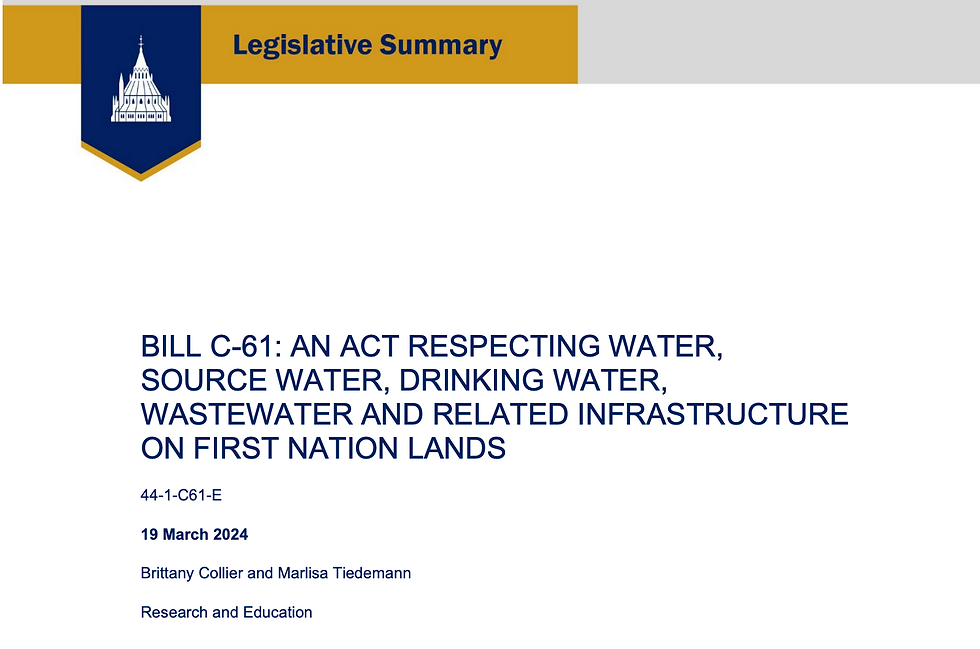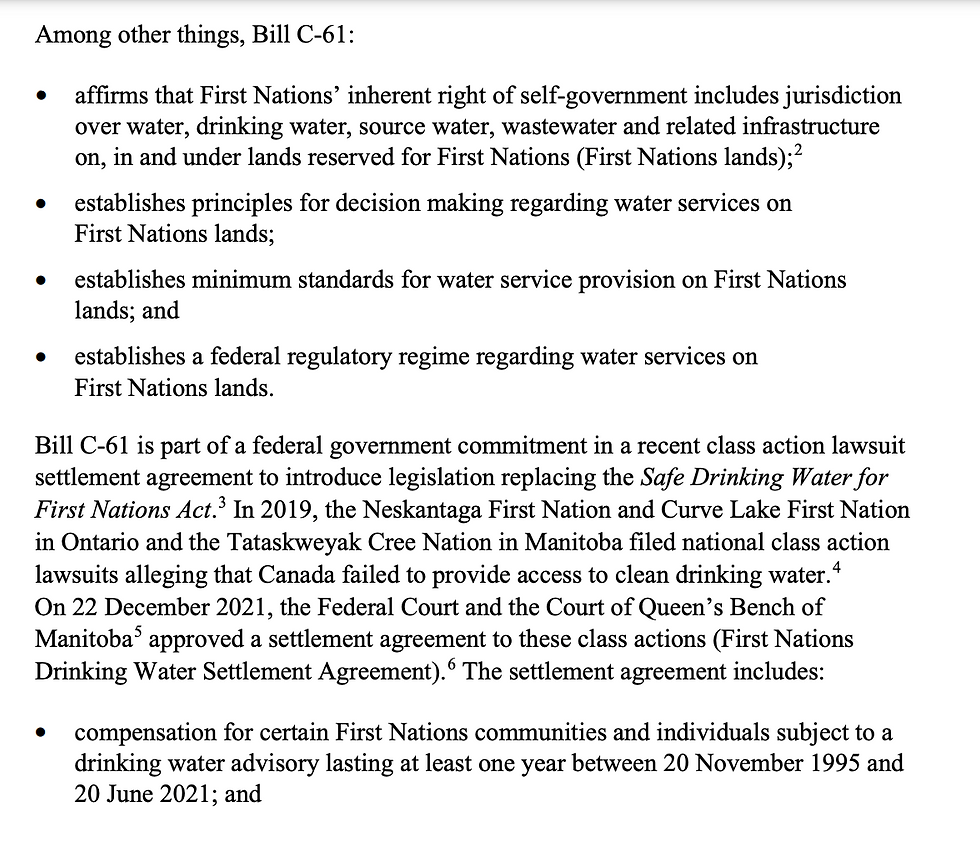Bill C-61: An Act respecting water, source water, drinking water, wastewater and related infrastructure on First Nation lands
- IWP-PAE Team/Équipe

- Feb 17, 2025
- 3 min read

Overview
The Bill was introduced to the House of Commons on December 11, 2023. Below is a brief summary of the Bill, drawn from the Parliamentary Library:


A clear explanation of the Bill
Some Feedback to Bill C-61
Chief Ouray Crowfoot from the Siksika First Nation succinctly sums up many First Nations’ concerns related to the Bill:
“The legislation is supposed to end Canada's shameful legacy of neglect, underfunding and discrimination against First Nations' access to safe drinking water, but it falls short. Canada commits to best efforts to ensure First Nations have safe drinking water. In light of Canada's century of failure on safe drinking water, First Nations must not be asked to accept and trust that Canada's best efforts will be effective. Many first nations across the country share this concern with Bill C-61.”
Here are the main points of feedback received as of Thursday, September 26, 2024, when Meeting 120 of the Standing Committee on Indigenous and Northern Affairs (INAN) was held:
An amendment to clause 3 is required, that would read: “For greater certainty, it is recognized and affirmed that First Nation peoples have a human right to safe drinking water consistent with United Nations resolution 64/292 (2010) and that pursuant to this Act the human right to safe drinking water means that all First Nation members resident on First Nation lands have a right to drink water that poses no risks to human health or well-being.”
Correct the two-tiered level of access to the $6 billion in water infrastructure funding provided in the Legislation, to give equal access to 60% of First Nations who are currently excluded from the class action providing access to a binding third party resolution process.
Involve Health Canada, Canadian Institutes of Health Research, and First Nations Women to help draw links between upstream pollution and community health, to better recognize the responsibility of polluters and incorporate the polluter pays principle into the bill.
Future waste-water regulations must also consider environmental risk assessments to the receiving water body. First Nations must have the ability to develop regulations; it is important to recognise that regulations and funding are connected.
While there is a mandate to start the work, there is no required deadline to finish it. Communities would be well served if there was a commitment to finalize the funding framework in partnership with first nations within two years of the legislation achieving royal assent.
Further to funding, if a first nation creates standards above the guidelines for Canadian drinking water quality or waste-water system effluent regulations, the funding framework must also provide adequate funding to design, install, operate, maintain and monitor the infrastructure required to meet those standards.
There is no precedent for enforcing regulations regarding water services in first nations and clause 24 enables the minister or a provincial, territorial or municipal government or any public body acting under the authority of the first nation to enforce first nations laws—or preferably, a first nations-designed and -led enforcement body—the actual cost of enforcement must be covered.
Additional equitable and culturally appropriate opportunities for first nations personnel in the water sector are needed. Furthermore, funding support for first nations youth and water professionals is essential to fully realize water regulations in Bill C-61.
The act should explicitly mention and address the very significant challenges associated with decentralized systems and how to safeguard these systems from failure, inclusive of funding. The technology used for all systems must be adapted to remote community needs, appropriate technologies must be identified.
C-61 needs to be reconsidered with the water system operators in mind:
1. Invest in operators’ training,
2. Support training & growth of operators,
3. Focus on infrastructure improvements & maintenance,
4. Engage frontline workers in conversation, ie the operators, and PAY THEM!!



